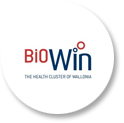
In March, GlaxoSmithKline(GSK) and the Texas A&M University System (TAMUS) announced the U.S. Department of Health and Human Services (DHHS) had approved the establishment of a $91 million (€70.3 million) influenza-vaccine manufacturing facility as the pillar for the Center for Innovation in Advanced Development and Manufacturing (CIADM*) in Bryan-College Station, Texas. Behind the development of this influenza vaccine facility lies the partnership between GSK and Texas A&M founded from a long, collaborative relationship between Texas A&M University System and the Walloon Export and Foreign Investment Agency (AWEX; L’Agence wallonne à l’Exportation et aux Investissements étrangers) with specific planning for this project dating back to the spring of 2010. AWEX is a public interest organisation in charge of the promotion of foreign trade and the attraction of foreign investments for Wallonia in Belgium.
The new facility will complement GSK’s capabilities to eventually manufacture an adjuvanted influenza pandemic vaccine based upon a Valneva’s proprietary cell-culture line, EB66®[1]. Since most influenza vaccines are currently manufactured using chicken eggs, the cell-culture process will supplement the egg-based vaccine supply in order to facilitate a rapid national vaccine response in the event of a pandemic outbreak.
Dr. Brett Giroir, Vice Chancellor for Strategic Initiatives at the Texas A&M University System who leads the Texas A&M Center for Innovation, complimented, “GSK brings unequaled influenza vaccine development, manufacturing, and regulatory expertise to our Center. Equally important, GSK brings its cell based influenza vaccine development program, which we have assessed to be the most promising near term influenza vaccine technology to improve upon current egg based vaccines.”
Today, the Texas A&M Center, one of only three CIADMs to be developed in the U.S., is at the forefront of pandemic-preparedness efforts and represents unprecedented public-health collaborations among state and federal governments, academia and private industries. Designed to perform research and advanced development in order to accelerate vaccine production and other medical treatments through pre-clinical and clinical development, and produce such treatments in cases of pandemics or other national emergencies, the Center will further support preparedness and response to known and unknown biosecurity threats, in efforts to improve the nation’s ability to protect the health of its citizens in emergency situations.
Once constructed and operational, the TAMUS influenza manufacturing facility will be able to supply 50 million doses of the pandemic influenza vaccine within four months of an outbreak for the U.S. population. Packaging, inspection and distribution of the influenza vaccines will subsequently be managed by GSK.
Antoon Loomans (Senior Vice President, GSK Vaccines) among many other dignitaries present for the announcement (hosted by Governor Rick Perry, Texas State Capitol), noted, “GSK is privileged to deepen [its] commitment to U.S. public health, as part of this unprecedented public-private partnership to protect against pandemics and bio-threats” continuing, “In Texas A&M we have found a partner with a rich tradition of service, and with pioneering technologies that will benefit the entire pharmaceutical industry in making vaccines available and accessible to all in need.”
In 2012, GSK provided more than 20 million flu shots for the U.S. market and recently became the first major U.S. vaccines provider to gain FDA-approval for an intramuscular vaccine to cover against four influenza strains, expected to be on the market in time for the 2013-2014 flu season. Currently, GSK Vaccines produces 30 vaccines worldwide, eleven of which are licensed by the FDA.
Also in attendance for the announcement, Texas A&M University System Chancellor John Sharp who expressed, “We are honored to welcome GSK to Texas A&M as a key partner in the Center for Innovation,” recognizing that, “GSK’s dedication to public service is well-aligned with the Texas A&M tradition of serving the nation and defining its future through research and scholarship.” Sharp further acknowledged the equal importance of “the cultural and philosophical match between GSK and the A&M System, as reflected by GSK’s desire to collaborate with academia and the U.S. government, and their ongoing commitment to helping address global health scourges such as pandemic influenza and malaria.”
*The Texas A&M Center for Innovation in Advance Development and Manufacturing (CIADM) is one of three centers established in June, 2012 by the US Department of Health and Human Services to enhance the nation’s emergency preparedness against emerging infectious diseases, including pandemic influenza, and chemical, biological, radiological and nuclear threats.
[1] * EB66® cell line exclusively licensed from Valneva SE (a European biotech company, created in 2013 from the merger between Intercell AG and Vivalis SA) by GSK Biologicals S.A. for the field of Influenza and sublicensed for use to the Texas A&M Center for Innovation in Advanced Development and Manufacturing (CIADM).
Contacts:
Dr. Michael Plater
GlaxoSmithKline Vaccines
Tel:
Steven B. Moore
Texas A&M University System
Tel:
Patricia Haigwood
Texas A&M Center for Innovation in Advanced Development and Manufacturing
Tel:






















